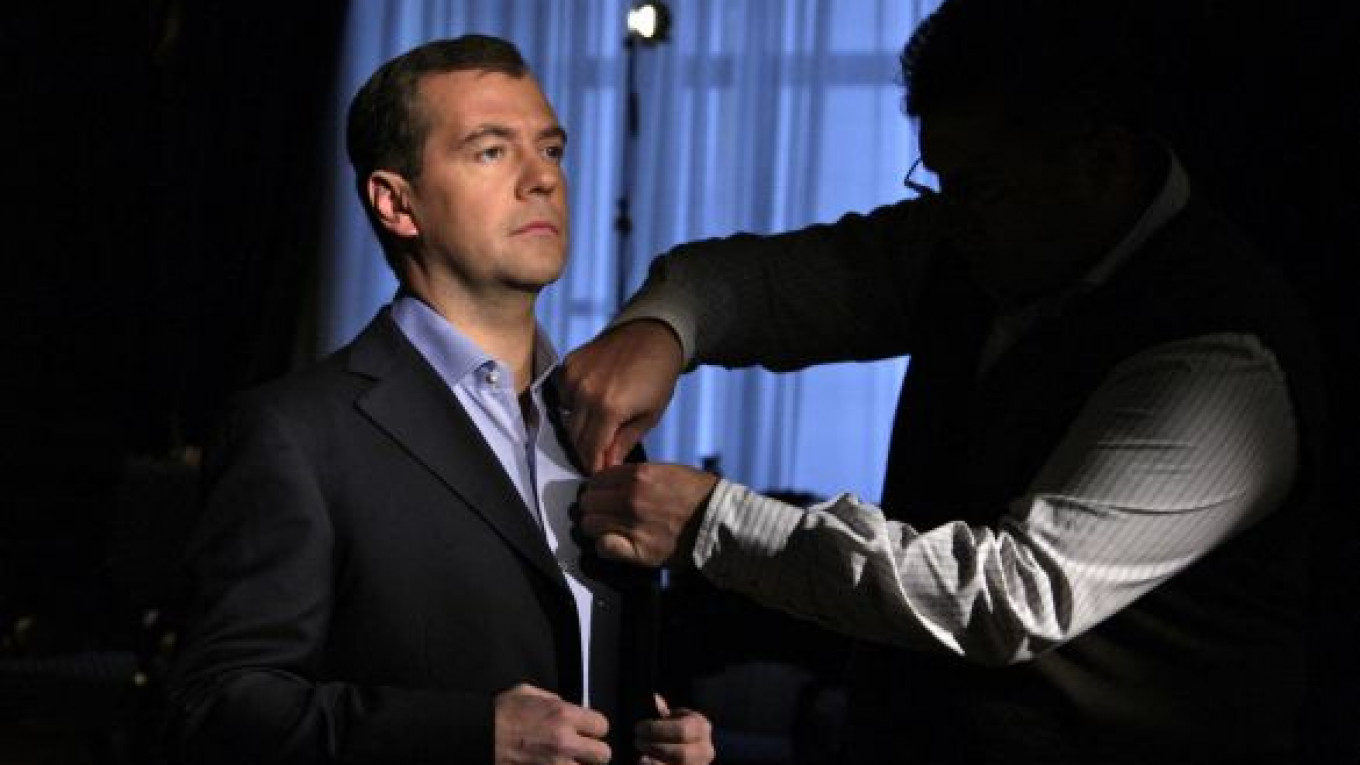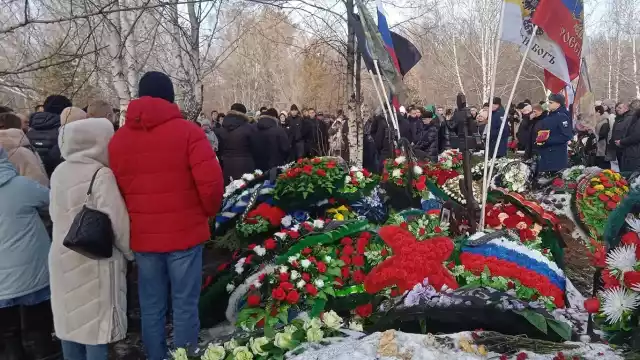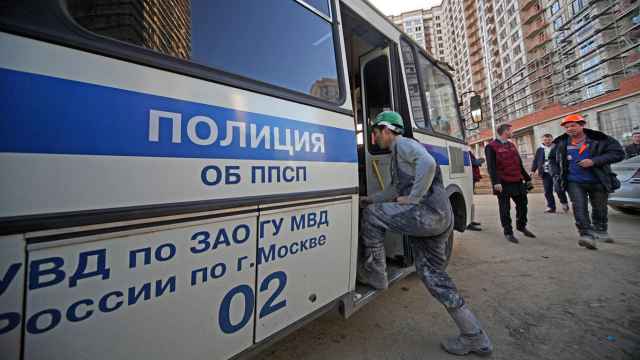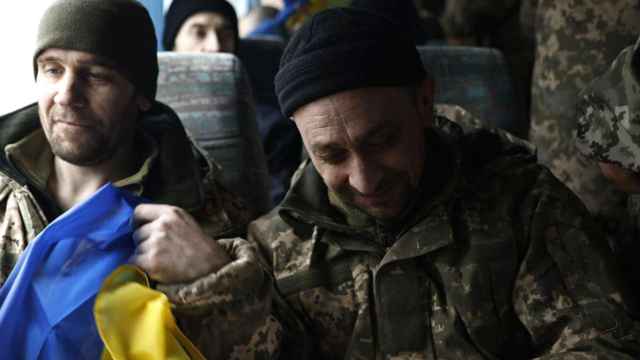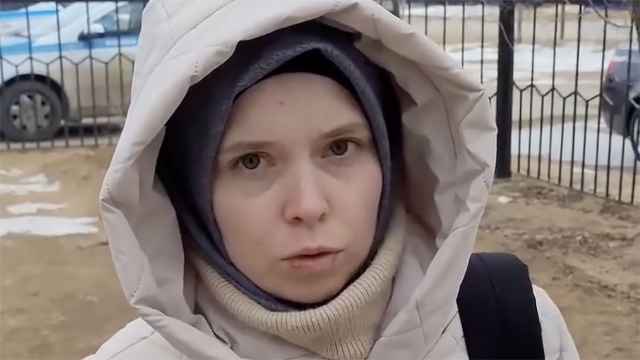President Dmitry Medvedev angrily accused his Belarussian counterpart, Alexander Lukashenko, of sowing hostility between Moscow and Minsk in a video blog speech that Belarussian opposition activists praised as Kremlin support for democratic change in their country.
"President Lukashenko's statements are not just far removed from diplomatic rules but also from elementary human principles," Medvedev said in the video address published on his blog late Sunday.
The president accused Lukashenko of depicting Moscow as Belarus' new archenemy. "Formerly this role was given to America, Europe and the West. Now Russia is shown as one of the main enemies," Medvedev said in the seven-minute address.
The unusual outburst came two days after Lukashenko accused Russia of trying to depose him by covertly financing the Belarussian opposition.
Authorities recently detained a courier trying to smuggle $200,000 for opposition leaders, Lukashenko said Friday, adding that the money had come from Russia.
Opposition activists in Minsk welcomed Medvedev's criticism and said it would help them win support before a Dec. 19 presidential election. Lukashenko, who has run Belarus in an authoritarian style since 1994, announced last month that he was standing for another five-year term.
"I strongly welcome this — it is a resounding signal to our people," said Andrei Sannikov, head of the European Belarus movement and a likely contender in the election.
Sannikov said it was only logical for Medvedev to show support for the opposition. "He understands very well that Lukashenko is anti-Russian. We are ready to rebuild ties with Moscow," he said by telephone from Minsk.
As Belarus has been riddled by the global economic crisis, Lukashenko has shifted his traditional staunch loyalty to the Kremlin toward courting of European Union countries.
The pro-Western moves in Belarus have led to deep divisions with Russia, even though both countries are officially locked in a so-called union state and a customs union.
In July, Gazprom-controlled NTV television aired the damning report “Krestny Batka” that accused Lukashenko of political repressions and sympathizing with Adolf Hitler.
Belarussian state television retaliated by showing an interview with Georgian President Mikheil Saakashvili, who came out in defense of Lukashenko.
Yaroslav Romanchuk, another prospective Belarussian presidential candidate, said Moscow should do more than denounce Lukashenko.
"I hope the information war will be followed by actions," he told The Moscow Times.
Romanchuk said Lukashenko enjoyed the support of only one-third of the population and that the opposition was confident of achieving a second-round victory if no candidate gets a majority on Dec. 19.
Vladislav Belov, an analyst with the Moscow State International Relations Institute, said it might be better for Moscow if Lukashenko lost the election because relations might stabilize.
"He is losing his sense of reality and become increasingly unpredictable," he said.
But others voiced doubt over the Belarussian fractured opposition's ability to win power and become a reliable ally of Moscow.
In the past, Lukashenko had little trouble winning elections. The last time, in 2006, he officially got 83 percent of the vote, which observers denounced as rigged.
The opposition has not come up with a single unified candidate so far, and Lukashenko's closest challenger in 2006, Alexander Milinkevich, has said he won't run because he does not believe that the election will be fair.
Sergei Markov, a State Duma Deputy for United Russia, conceded that Moscow might well have to put up with Lukashenko for some time to come.
“There is no Belarussian Yanukovych in sight,” he said, referring to Ukrainian President Viktor Yanukovych who redefined his country’s pro-Western policies to take a more pro-Russian approach after coming to office in February.
A Message from The Moscow Times:
Dear readers,
We are facing unprecedented challenges. Russia's Prosecutor General's Office has designated The Moscow Times as an "undesirable" organization, criminalizing our work and putting our staff at risk of prosecution. This follows our earlier unjust labeling as a "foreign agent."
These actions are direct attempts to silence independent journalism in Russia. The authorities claim our work "discredits the decisions of the Russian leadership." We see things differently: we strive to provide accurate, unbiased reporting on Russia.
We, the journalists of The Moscow Times, refuse to be silenced. But to continue our work, we need your help.
Your support, no matter how small, makes a world of difference. If you can, please support us monthly starting from just $2. It's quick to set up, and every contribution makes a significant impact.
By supporting The Moscow Times, you're defending open, independent journalism in the face of repression. Thank you for standing with us.
Remind me later.



